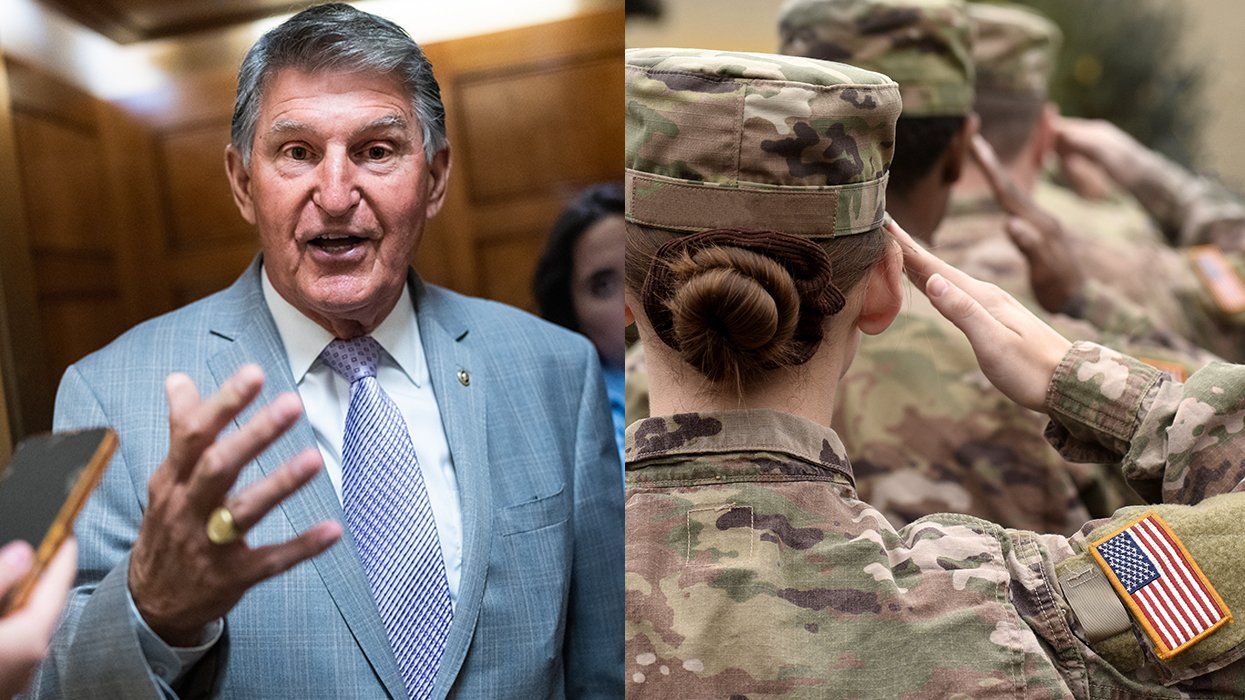In a distressing turn for LGBTQ+ rights, Sen. Joe Manchin of ruby-red West Virginia, who recently became an independent after leaving the Democratic Party, has joined Senate Republicans in supporting amendments to the annual must-pass defense policy bill. These amendments, which restrict gender-affirming care for transgender military personnel and their families, have sparked outrage.
During closed-door sessions last month, the Senate Armed Services Committee added amendments to the National Defense Authorization Act. These amendments ban the use of Department of Defense funds for “sex change surgeries” and prevent the military health system from offering hormone therapy, puberty blockers, and other treatments for transgender minors. The amendments to the NDAA passed narrowly, 13-12, with Manchin’s support proving decisive.
Manchin’s vote aligns with his past actions concerning LGBTQ+ rights. His low score from the Human Rights Campaign reflects a history of lukewarm and sometimes opposing stances on critical LGBTQ+ issues. Manchin’s inconsistent support for LGBTQ+ issues has earned him a dismal 55 out of 100. His vote to restrict essential healthcare for transgender service members and their families continues that pattern.
Ian Thompson of the American Civil Liberties Union described the amendments as “a dangerous affront to the rights and freedom of transgender servicemembers with no financial, legal, political, or medical justification.”
HRC president Kelley Robinson expressed strong condemnation. “Everyone deserves medically necessary, best practice healthcare without politicians standing in the way. That includes those who serve their country bravely and their families. These attempts to hijack the National Defense Authorization Act are outrageous and will cause real-world harm. The Senate should reject these provisions and get back to ensuring those who serve their country are repaid with the dignity and respect they deserve,” Robinson said, according to Erin in the Morning.
The amendments, although passed in committee, still need approval from the full Senate. The bill must also be reconciled with the House version before it can become law. Historically, Senate Democrats have opposed anti-LGBTQ+ measures, signaling a tough battle ahead.
Senate Majority Leader Chuck Schumer, Democrat of New York, has already criticized the House version of the NDAA for being “loaded with anti-LGBTQ, anti-choice, anti-environment, and other divisive amendments guaranteed not to pass the Senate,” The Hill reports. This sets up a significant clash between the two chambers, highlighting the deep divides in current U.S. politics.
The fight over transgender rights in the military is part of a broader cultural and political struggle in the United States. Since the Obama administration allowed transgender troops to serve openly in 2016, policies have swung back and forth. Former President Donald Trump reinstated a ban on transgender service in 2017, a move that President Joe Biden reversed upon taking office in 2021. Despite these changes, conservative efforts to limit transgender rights have intensified.





































































Charlie Kirk DID say stoning gay people was the 'perfect law' — and these other heinous quotes